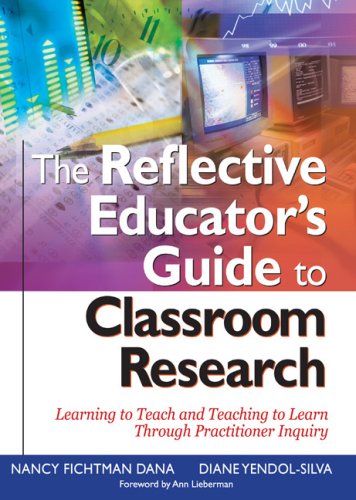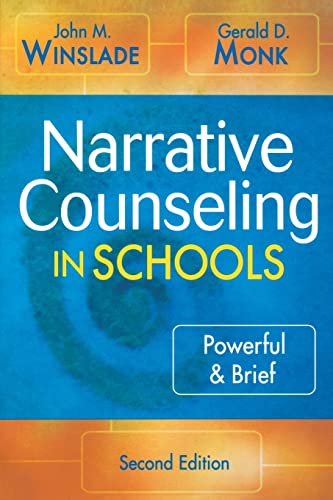Consider this your notice to get these books, read along, and share your thoughts on Twitter - if you dare.
Dana, N. F. & Yendol-Silva, D. (2003). The reflective educator's guide to classroom research: Learning to teach and teaching to learn through practitioner inquiry. Thousand Oaks, CA: Corwin Press.
(There's also a second edition by Danna and Yendol-Hoppey.)
First heard about this book here via Bud. Dana and Yendel-Hoppey take readers step-by-step through the planning, implementation, and publishing of an inquiry project, helping teachers complete their own research as to how their students learn best.
I love classroom research because I'm a nerd like that. I had thought I'd have to take some statistics courses and get a doctorate in order to do any legitimate educational research of my own, but the first chapter of this book has suggested I can just do a different kind of research1.
Winslade, J. M. & Monk, G. D. 2007. Narrative counseling in schools (2nd ed.). Thousand Oaks, CA: Corwin Press.
This was on last summer's list, but I didn't get past Marzano. A suggestion from my partner Jennie from the place where social work and education meet. Narrative counseling is talk therapy that places problems outside the individual - rather than the student has behavior problems, behavior problems affect the student. "If we are located in a school story line as dumb, mischievous, or a bad egg, there is a tendency to live our lives according to the contours of the problem story laid out before us by such a description" (p. 3). The objective of narrative therapy is to help the student rewrite that story line. I would argue that teachers are the ones most responsible for writing the original story line to begin with, so who better to help the students rewrite it2?
Here's my proposed schedule - I'm going to start this week so those of us who start school before Labor Day3 won't have much reading to do once school has started back up.
The Reflective Educator's Guide to Classroom Research
- By Monday, June 25th, read to page 48.
- By Monday, July 2nd, read to page 63.
- By Monday, July 9th, read to page 106.
- By Monday, July 16th, finish the book (p. 148).
Narrative Counseling in Schools
- By Monday, July 23rd, read to page 22.
- By Monday, July 30th, read to page 70.
- By Monday, August 6th, read to page 122.
- By Monday, August 13th, read to page 174.
I'll be commenting on my reading @bleckley with the hashtag #PiPreading. Hope I'll hear from you too4.
1. We'll see how it goes. Seems much more subjective research and I'm not sure how I'd mitigate my bias for wanting my planned lesson to work. Go back.
2. Okay, besides great school counselors and social workers. Go back.
3. Suckers. Go back.
4. Because last year it was just my dad. Which was awesome. But he didn't tweet. So it was a very one sided conversation. Which was fine, since I do like to hear myself talk . . . er, tweet? Go back.


